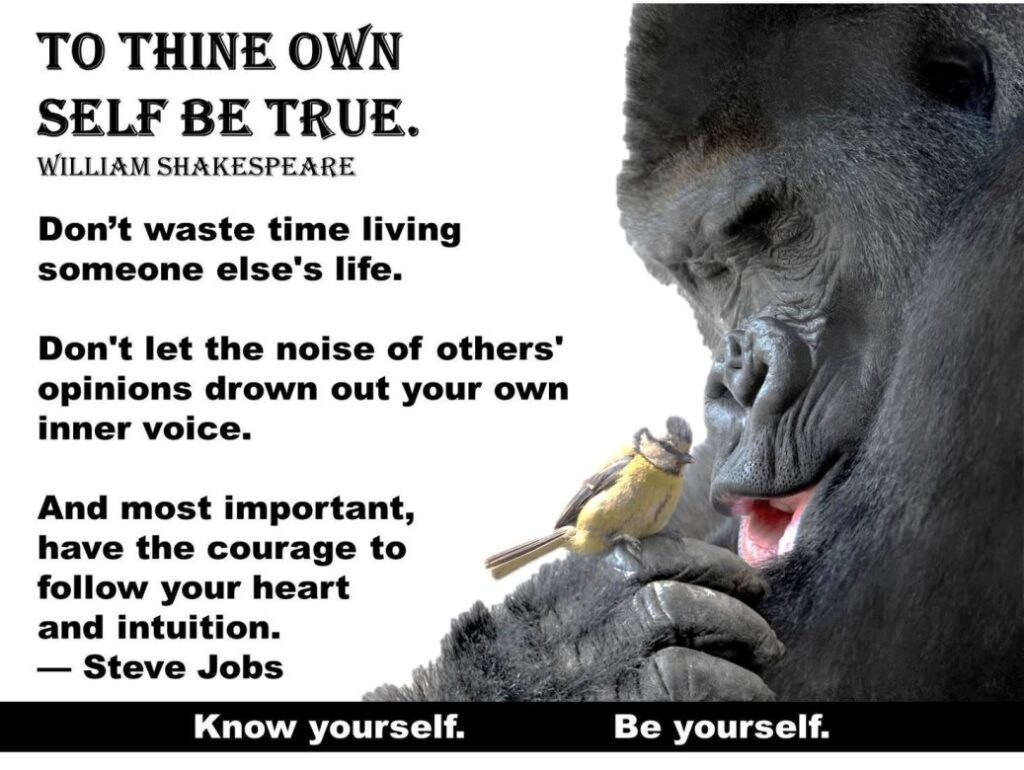Senior Member. Thy self is indeed an expression of Thine own self. “Know thine self” may not be genuine, archaic grammar, but it is a popular, modern-day expression encapsulating Old English. The lack of context in the original question doesn’t suggest that historical correctness is needed.
in the same way Is Thy third person? Archaic and non-standard. Apart from the standard forms given above, English also has a number of non-standard, informal and archaic forms of personal pronouns. An archaic set of second-person singular pronouns is thou, thee, thy, thine, thyself. In Anglo-Saxon times, these were strictly second person singular.
Is Theyself a word? As pronouns the difference between themself and theyself
is that themself is the single person previously mentioned, as the object of a verb or following a preposition (also used for emphasis) while theyself is themselves.
What is thee in Old English? Thee is an old-fashioned, poetic, or religious word for ‘you‘ when you are talking to only one person. It is used as the object of a verb or preposition. I miss thee, beloved father. English. Grammar.
What are Old English words?
Archaic words that used to be common In English
| abroad | out of doors |
|---|---|
| caducity | the infirmity of old age; senility |
| camelopard | a giraffe |
| cannonade | bombard |
| carl | a man of low birth |
Beside this What is grammar person?
In grammar, a person is the way of referring to someone taking part in an event, such as the person talking, the person being talked to, the person being talked about. … The first person is the speaker referring to himself or herself. The second person is the person whom someone is speaking to or writing to.
How do you use thy?
Is 4th person a thing? The term fourth person is also sometimes used for the category of indefinite or generic referents, which work like one in English phrases such as “one should be prepared” or people in people say that…, when the grammar treats them differently from ordinary third-person forms.
Is thyself a real word?
Thyself is an old-fashioned, poetic, or religious word for ‘yourself‘ when you are talking to only one person.
Does thyself mean myself? Definition of thyself
archaic. : yourself —used especially in ecclesiastical or literary language and sometimes by Friends especially among themselves.
What is a THY?
Definition of thy
archaic. : of or relating to thee or thyself especially as possessor or agent or as object of an action —used especially in ecclesiastical or literary language and sometimes by Friends especially among themselves.
Why do Quakers use thee and thou? Long before he founded Pennsylvania, the Quaker William Penn would argue that when applied to individuals, the plural “you” was a form of idolatry. … The Quaker use of “thee” and “thou” continued as a protest against the sinfulness of English grammar for more than 200 years.
What doth thou mean?
(dʌst ) verb. archaic or dialect (used with the pronoun thou or its relative equivalent) a singular form of the present tense (indicative mood) of do1.
What does it mean to YEET?
As an exclamation, yeet broadly means “yes”. But it can also be a greeting, or just an impassioned grunt, like a spoken dab.* In verb form, yeet’s meanings are more disparate. I have heard people describe themselves as “yeeting around” to mean both meandering and excelling.
What is YES in Old English? The English word ‘yes’ is thought to come from the Old English word ‘gēse’, meaning ‘may it be so’, and can be traced back to earlier than the 12th century. In the centuries since, lots of alternatives to the word ‘yes’ have sprung up in the English language, and there are no many meanings for the word ‘yes’ too.
What words are no longer used? 50 Outdated Words That Instantly Age You
- “Mobile phone”
- “Dungarees”
- “Rolodex”
- “Card”
- “Stewardess”
- “Lousy”
- “Pictures”
- “Groovy”
Can I say 2 persons?
Both are correct, in the right context. Quite often , when making a booking, a hotel receptionist will ask you how many persons will be staying; and you would reply accordingly- two persons in single rooms or two persons in a double room .
What is tense and person? Person refers to the subject or object of the verb. Number identifies whether a verb is singular or plural. A few terms will help you to understand how verb tenses are formed. Tense: Refers to the time the action (or state of being) is taking place.
What is an example of 2nd person?
What is second person? Second person is a point of view that refers to a person or people being addressed by a writer or speaker. For example, the sentence You walked across a bridge uses the second person to say what “you” (the reader or listener) did.
Is Thy still used? Thou is the nominative form; the oblique/objective form is thee (functioning as both accusative and dative), the possessive is thy (adjective) or thine (as an adjective before a vowel or as a pronoun) and the reflexive is thyself. … The use of the pronoun is also still present in poetry.
Is Ye a real word?
Ye is an old-fashioned, poetic, or religious word for you when you are talking to more than one person. … Ye is sometimes used in imitation of an old written form of the word ‘the.
What does thee thy thou mean? Thee means (to) you. Thy means your. Thou means you. Ye means “O” (a word that comes before a name, to signify that you’re calling that person). Edit: An example of different usage of thee and thou: “Glory be to thee” and “Thou art kind”.
Do’t forget to share this post !
